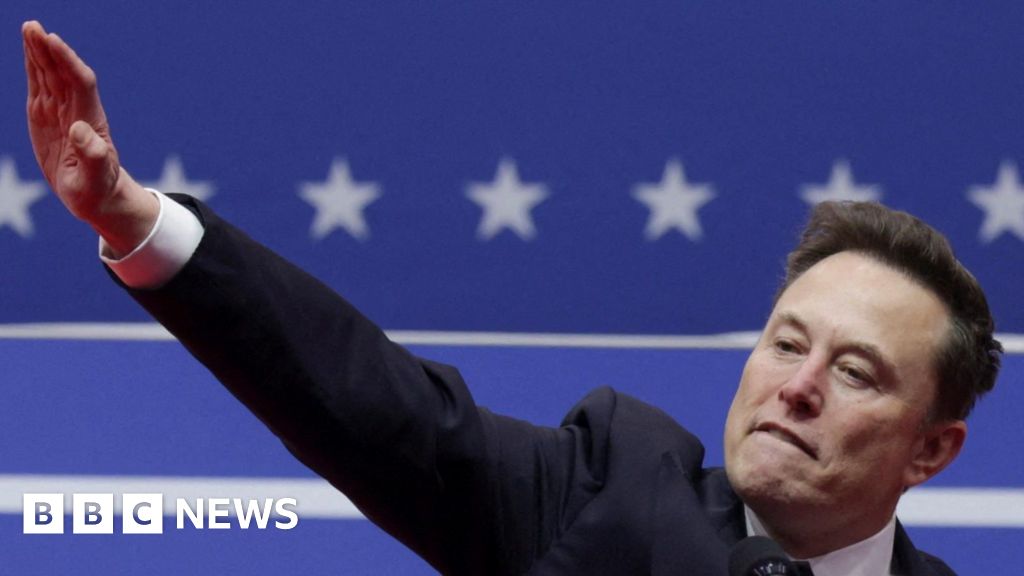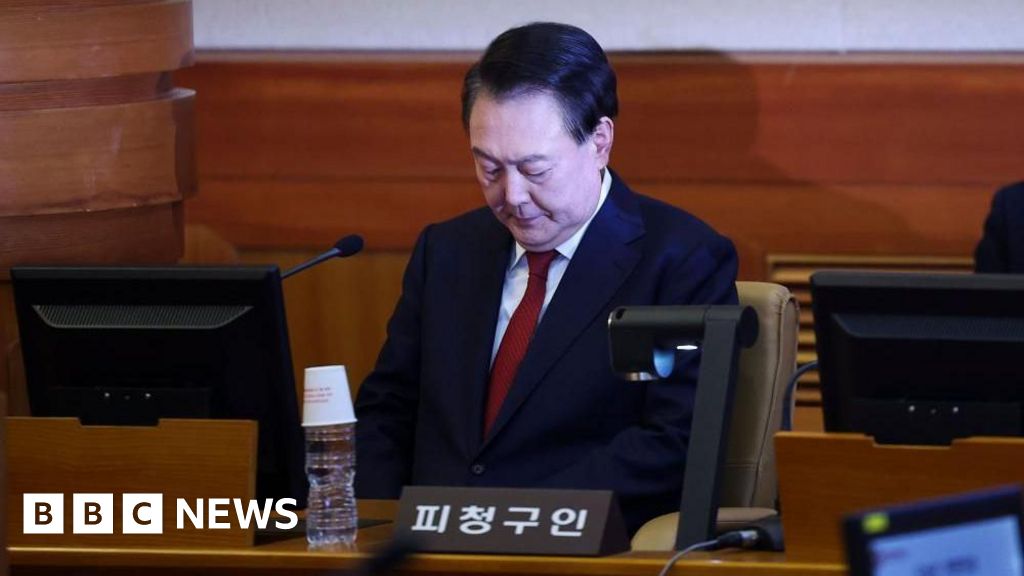ARTICLE AD BOX
By Secunder Kermani
BBC News, Kabul
Waving their hands excitedly in the air, a class of six- and seven-year-old girls eagerly try to get their teacher's attention, each one desperate to be chosen to answer a question about Persian grammar.
The Manouchehri primary school in Kabul was among the first to re-open for girls following the US invasion in 2001 and the defeat of the Taliban. Back then, there was just a single room, with pupils sat on a mud floor.
Under Taliban rule, beginning in Kabul in 1996, girls weren't allowed to get an education, and female teachers were ordered to stay at home.
Aisha Misbah was one of them. Now she's headteacher and proudly shows off newly built classrooms.
Many of those she taught have gone on to become doctors, engineers or even teachers at the school, she says.
"This is our biggest achievement. Our students are so bright. They're so creative and make such beautiful things that even we get shocked. I hope the Taliban will allow it all to continue."
Since taking over Afghanistan for a second time, the Taliban have permitted girls to go to school.
For now, however, only primary school pupils of both genders are attending classes, whilst teachers await the publication of new rules governing secondary schools.
In some more rural areas, there have long been reports of Taliban commanders only permitting girls to go to school until they reach the age of puberty.
The most recent figures from the World Bank show that about 40% of Afghan girls attend primary school, far more than during the Taliban's previous stint in power but far fewer than in other countries in the region.
It's a similar picture in healthcare, where infant and maternal mortality rates have improved but remain shockingly high.
The Taliban insist women will be allowed to work, but some remain sceptical, especially after Taliban officials recently said most women, other than those working in healthcare or education, should stay at home until security improves.
The same excuse was given throughout the 1990s to completely prevent women working.
But the pupils at Manouchehri face other challenges, too.
In the playground, three large tents have been erected, with desks and blackboards. The school is so overcrowded that about half of the pupils have to study outside.
Pleas to the previous government fell on deaf ears, and when non-government organisations offered to help, they were told to give the money to the education ministry first.
Rampant corruption has plagued Afghanistan over the past two decades, and it meant that the billions of dollars of international support didn't always make it to those in need.
The education system has helped mould, however, a generation of young Afghan women and men who are vocal in standing up for their views, including challenging the Taliban.
"We are not those men and women of 20 years ago," one female protester at a demonstration in Kabul tells me, "who were whipped into submission."
Another, her voice pulsing with emotion says: "We are not afraid of death. We are the young generation who will bring forth the buds of peace."
The new government announced by the Taliban consists entirely of members of the group, all of whom are men.
Many had served in senior positions during the Taliban's reign during the 1990s, a period marked by a brutal interpretation of sharia law.
For many others in more rural areas, where attitudes are more socially conservative, the greater social freedoms some have grown up with in bigger cities since 2001 feel irrelevant when compared with the suffering of living along the frontline.
Few Afghans have been unaffected by the war, irrespective of their background, but in villages caught along bloody frontlines, many have welcomed the arrival of the Taliban - for at least bringing an end to the violence.
If the price of peace is greater cultural authoritarianism, some are more willing to pay it than others.
At a snooker club in Kabul, less than a week after the city was taken over by the Taliban, I meet a group of young men from the city's middle class.
A mix of students and business owners, speaking on condition of anonymity, they're scathing about the Taliban.
One says they look like "zombies", worrying they will soon start dictating whether or not men can shave their beards or how they can style their hair, whilst others question how they can trust a group responsible for so many suicide bombings and attacks.
But they're also all damning about Afghanistan's political class.
Ashraf Ghani, the former president who fled abroad, "should be arrested", they proclaim.
"He sold out the future of all young people," says one of the group, accusing him of having escaped with millions of dollars - the allegation Mr Ghani denies.
They're equally dismissive of those politicians who have stayed in the country but who over the years have often taken part in deeply disruptive political spats.
"They weren't trying to solve the problems of ordinary people, but just trying to fill their own pockets and share the wealth with their own relatives."
The last two presidential elections in Afghanistan ended in standoffs, with widespread allegations of voter fraud.
Nevertheless, however flawed the previous democratic system was, the young men at the snooker club deeply rue its passing.
"We've worked hard and are educated. We could've lifted the country up but now we can't do anything to serve it."
Of all the "gains" made over the past two decades, the creation of an independent local media is one the principal success stories.
News organisations were amongst the freest in the region, despite being violently targeted by militants.
Journalists did at times face threats from the government.
For example, former Vice-President Amrullah Saleh, now a leading figure in the National Resistance Front, once ordered the arrest of those responsible for "fake news" about civilian deaths as a result of a 2020 government air strike in Takhar province, in which it's believed 12 children were killed.
image source, MARCUS YAM/LOS ANGELES TIMES/Shutterstock
image captionInjured journalists Taqi Daryabi, left, and Nematullah NaqdiHowever, recent days have raised fears the Taliban will not tolerate coverage they perceive as negative.
Whilst the group initially claimed they would allow a free press as long as journalists don't breach "Islamic values" or the "national interest", reporters covering recent, peaceful protests against the group have at times been detained and badly beaten.
Earlier this week, 22 year-old Taqi Daryabi and a colleague were taken away by the Taliban from a demonstration they had been covering to a police station.
"There were around seven to 10 men in one room, they all started kicking me, and beating me with sticks and rubber pipes," Taqi told the BBC, his back and face still covered in bruises.
"One Talib told me, 'be grateful I didn't cut your head off,'" Taqi says. "Now that the Taliban are here, no-one can feel safe. In the past we have seen them kill, kidnap and beat journalists… they should allow us to work freely."
The legacy of American and international intervention in Afghanistan will be deeply contested.
Signs of the US influence are already fading first.
At "Bush Bazaar", named after the former American president and famous for selling military gear smuggled out of international bases, most of the flak jackets or rifle scopes on sale are now Chinese replicas.
Whereas army soldiers or private security guards hired by politically powerful Afghans were once the main customers, now Taliban fighters stroll past the shops.
One, Fatih, from the eastern province of Khost, is looking for a new set of boots. He's disappointed, he hoped to buy some that had been made in America, but "everything is Chinese".

 3 years ago
56
3 years ago
56








 English (US) ·
English (US) ·